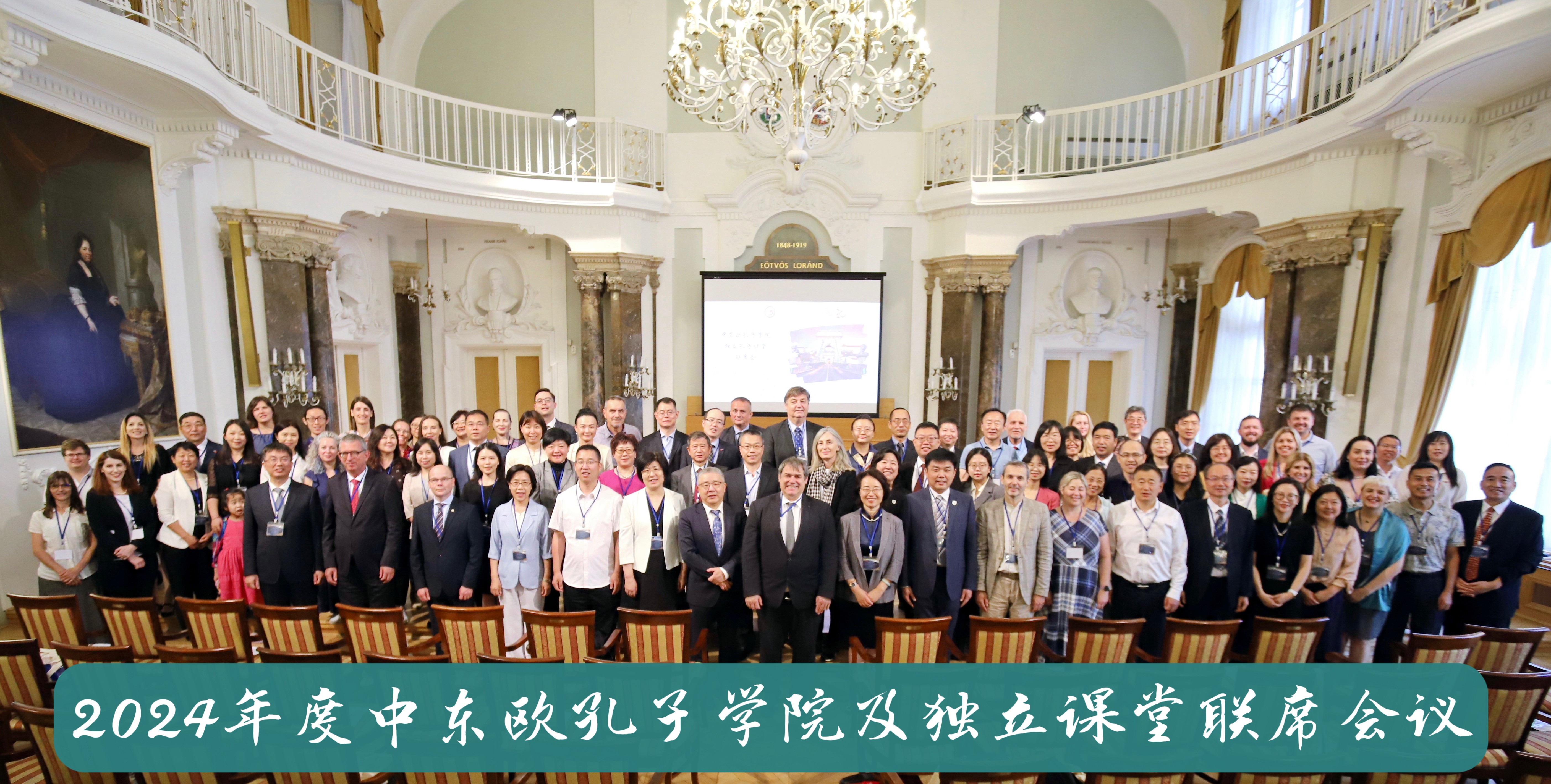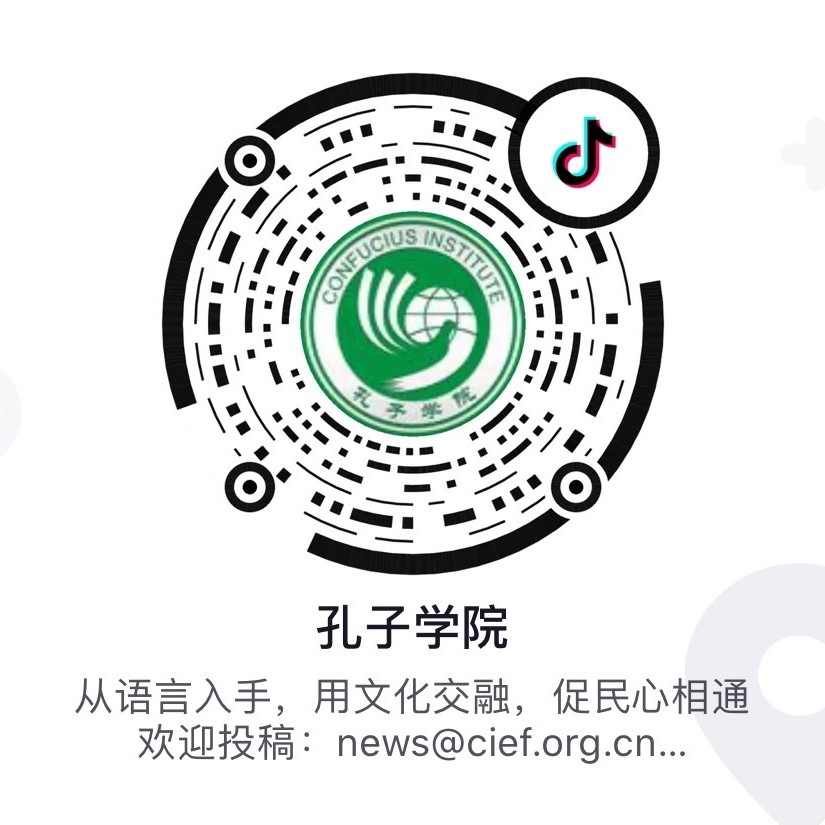From July 4th to 5th, 2024, the 2024 Joint Conference of Confucius Institutes and Independent Confucius Classrooms in Central and Eastern Europe, organized by the Chinese International Education Foundation (CIEF) and co-organized by Eötvös Loránd University (ELTE) and its Confucius Institute in Hungary, was successfully held. More than 100 people from 19 countries attended the conference, among whom are the Chinese and local Directors of 35 Confucius Institutes and 4 Independent Confucius Classrooms, and representatives of the Chinese and local hosts of the CIs and CCs.
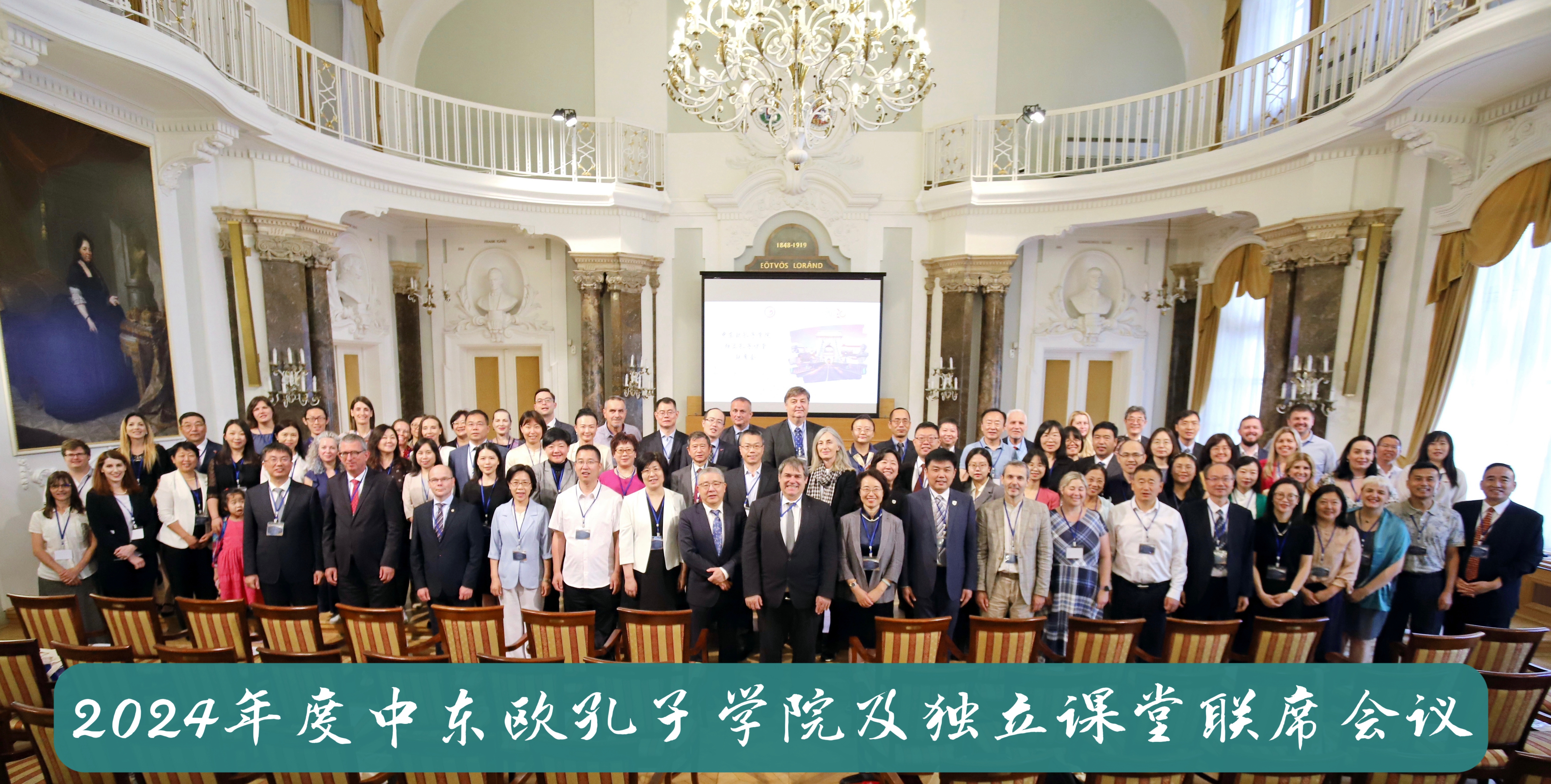
Zhang Junli, Deputy Secretary-General of CIEF; Han Dongsheng, Education Counselor of the Chinese Embassy in Hungary; Hamar Imre, Vice President of ELTE and Hungarian Director of the Confucius Institute at ELTE; and Zhao Gang, Vice President of Beijing Foreign Studies University (BFSU), delivered speeches at the opening ceremony.
Deputy Secretary-General Zhang Junli pointed out that the CIs in Central and Eastern Europe have well served their students, host institutions and local communities. They have become professional platforms for Chinese language education, comprehensive platforms for cultural exchange, supportive platforms for pragmatic cooperation, and friendship platforms for fostering exchanges among people. She suggested that the CIs should further the teaching quality, innovate development models, strengthen cooperation mechanisms, and build a closer community of shared future for the CIs in Central and Eastern Europe.
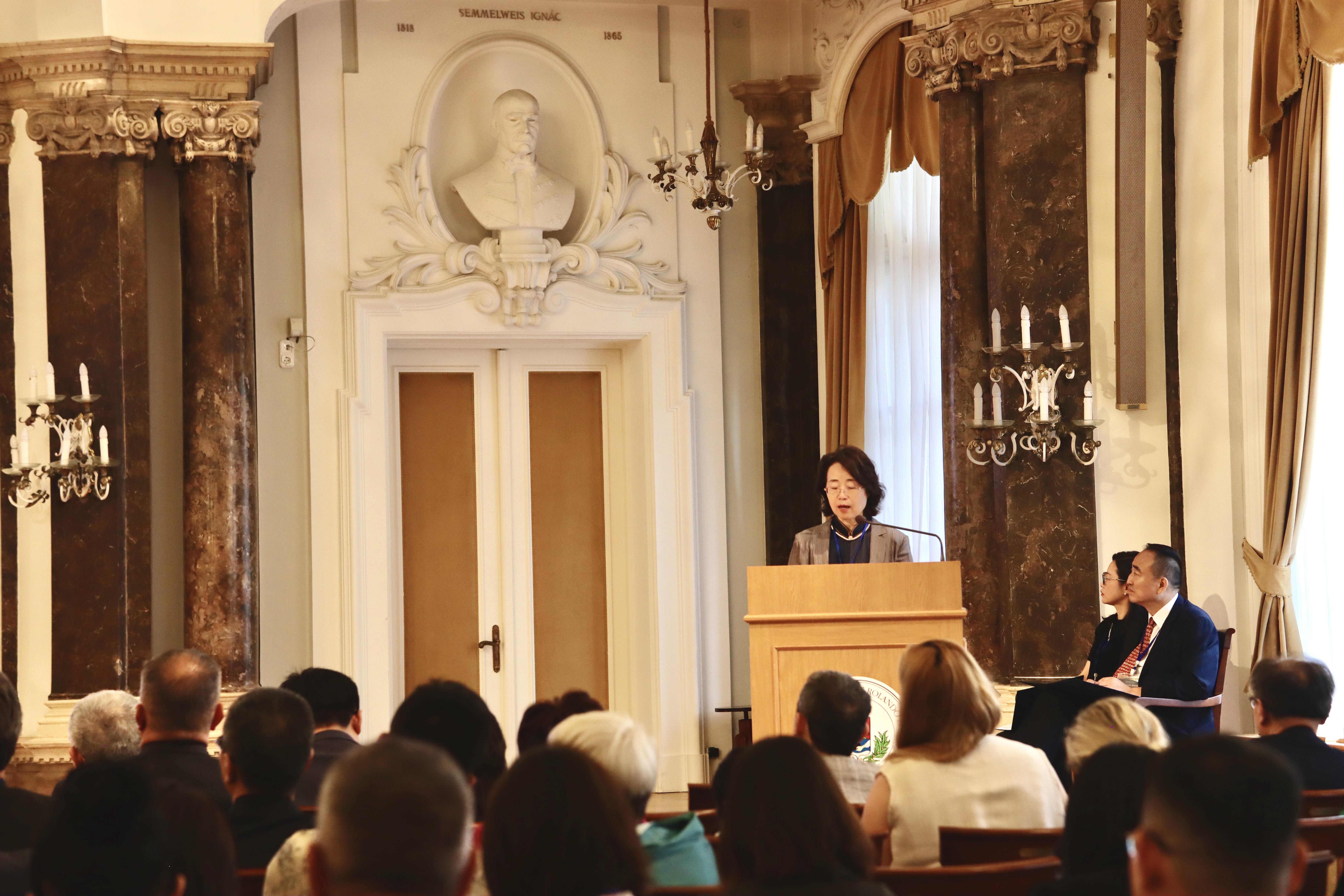
Counselor Han Dongsheng stated that during President Xi Jinping’s visit to Hungary, the joint statement issued by the two countries pointed out the direction for the development of the Hungarian CIs and international Chinese language education. The CIs have provided talent support for bilateral cooperation and have contributed to strengthening the friendship between both peoples.
Vice President Hamar Imre stated that the CI at ELTE offers Chinese courses at various levels, conducts a variety of cultural activities, and assists the university’s Chinese Department in terms of teaching and Chinese studies. It has opened a door for the local people to gain further knowledge about China and has created a lasting and profound impact.
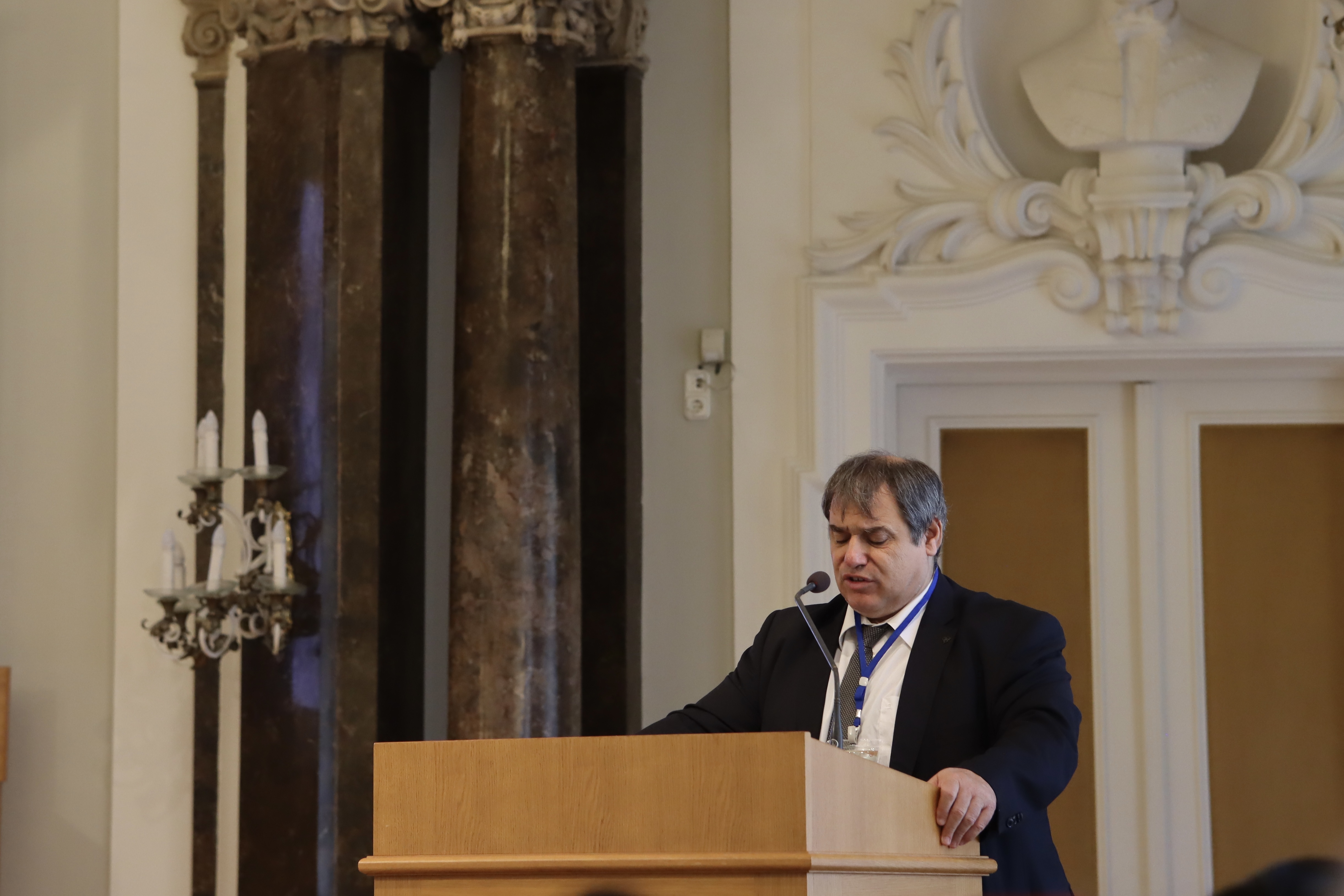
Vice President Zhao Gang stated that BFSU will promote the development of the CIs from three aspects: building a high-caliber faculty team, conducting high-level cultural exchanges, and promoting comprehensive inter-university cooperation.
Under the theme of “Joint Progress and Win-win Cooperation,” the participants engaged in discussions on four topics: “Leveraging Unique Advantages for Innovative Development of Confucius Institutes,” “Regional Coordination and Sharing to Create an Ecosystem for the Sustainable Development of Confucius Institutes,” “Regional and National Chinese Education Policies, the Demand for Chinese Learning and the Role of Confucius Institutes (Classrooms),” and “Looking into the Past and Future and Celebrating the 20th Anniversary of Confucius Institute.” The representatives introduced the achievements of CIs in serving their host universities and communities, demonstrated successful practices in fostering inter-university and university-enterprise cooperation, shared valuable experiences in integrating disciplinary advantages into the development and talent education of CIs, and expressed their confidence in integrating Chinese language education into local and national education systems as soon as possible. Reflecting on the past, the CIs have explored and advanced; and looking ahead, the CIs will undoubtedly achieve breakthroughs based on existing practices and experience.
This conference is the first joint conference of the CIs and CCs in the Central and Eastern European region since the establishment of the CIEF. The important role of this regional joint conference as a platform has been unanimously recognized by all the participants, as they wished to establish an annual conference mechanism for the CIs in this region.


